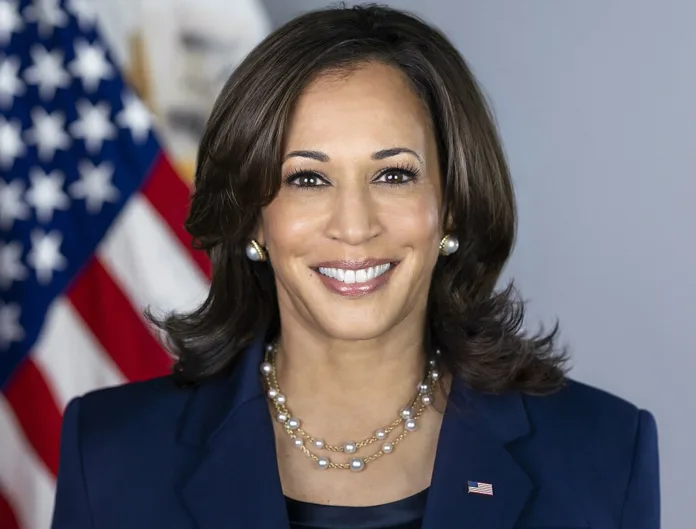Vice President Kamala Harris’ proposed federal ban on price gouging aims to tackle rising food prices but may lead to unintended economic consequences, according to experts
On August 16, 2024, Vice President Kamala Harris announced a controversial plan to implement a federal ban on price gouging in the food industry. Addressing a campaign event in Raleigh, North Carolina, Harris promised new penalties for companies that exploit crises by inflating prices. This proposal comes amid rising food costs, which have surged more than 20% under the Biden-Harris administration, prompting concerns among voters about their shrinking grocery budgets.
Harris’ plan is designed to curb what she describes as opportunistic pricing practices that exacerbate consumer hardship. “My plan will include new penalties for opportunistic companies that exploit crises and break the rules,” Harris stated. However, her proposal has faced scrutiny from economists who argue it could complicate the economic landscape further.
Embed from Getty ImagesGavin Roberts, an economics professor at Weber State University, analyzed anti-price gouging laws implemented by various states during the pandemic. His research indicates that such laws often prompted consumers to stockpile goods, which exacerbated shortages rather than alleviating them. According to Roberts, the most effective response to high prices is often no intervention at all. He argues that when prices rise, it encourages consumers to switch to alternative products, thereby balancing supply and demand without disrupting market dynamics.
Roberts further contends that Harris’ plan might hinder market competition. By enforcing strict price controls, the proposal could deter new entrants from competing in the food industry, potentially perpetuating high prices instead of lowering them. “It’s more likely to maintain the status quo,” Roberts explained. “The plan could prevent new competition from entering the market and lowering prices over time.”
Jason Furman, a former top economist in the Obama administration, echoes Roberts’ concerns. He criticizes the proposal as “not sensible policy” and expresses scepticism about its effectiveness. “The biggest hope is that it ends up being a lot of rhetoric and no reality,” Furman told the New York Times. He views the plan as having minimal upside and potential drawbacks.
The debate over Harris’ proposal is set against a backdrop of complex factors influencing inflation. While some argue that corporate price gouging has contributed to rising costs, research from the San Francisco Federal Reserve suggests that such practices were not the primary drivers of inflation. The inflation surge, which began in 2021, has been attributed to a combination of factors including the war in Ukraine, increased government spending, and pandemic-related supply chain disruptions.
Harris’ plan has its supporters as well. Lindsay Owens, executive director of the Groundwork Collaborative, a progressive think tank, praised the initiative. Owens believes that the proposal would empower government agencies like the Federal Trade Commission to tackle price-fixing and other anti-competitive practices more effectively. “It’s good to see this aggressive approach,” she said, highlighting the potential for the plan to enhance regulatory oversight and protect consumers from unfair pricing.
Despite the mixed reactions, Harris’ proposal underscores the ongoing debate over how best to address rising consumer prices and market inequities. As the plan moves forward, it will face continued scrutiny and evaluation from both economists and policymakers.
Analysis:
Political: Kamala Harris’ proposed ban on price gouging is a strategic move aimed at addressing voter concerns over rising food prices, a significant issue in the current political climate. The proposal aligns with the Biden administration’s broader agenda to protect consumers and promote economic fairness. However, the plan also faces political pushback from economists and critics who argue that it may not effectively address the root causes of inflation. This proposal will likely become a focal point in the political discourse leading up to the election, influencing both public perception and policy debates.
Social: Harris’ plan reflects growing public frustration with high food prices and perceived corporate greed. Socially, the proposal resonates with voters who feel squeezed by inflation and are seeking relief. The debate highlights broader concerns about economic inequality and the role of government in regulating markets. The proposed ban is seen by some as a proactive measure to protect vulnerable consumers, while others view it as a potential overreach that could exacerbate existing problems.
Racial: The impact of the price gouging ban may intersect with racial and socioeconomic factors. Communities of color, which are often disproportionately affected by economic hardship, could benefit from measures designed to curb unfair pricing. However, if the plan leads to unintended consequences such as reduced market competition or increased scarcity of goods, these communities might suffer more acutely. The proposal’s effectiveness in addressing racial disparities in economic hardship will be a crucial aspect to monitor.
Gender: The plan is unlikely to have direct gender implications, but it does intersect with broader discussions about economic policies and their impacts on different demographic groups. Women, who often manage household budgets and are disproportionately affected by rising food costs, may find the proposal particularly relevant. However, if the policy leads to negative economic outcomes, such as higher prices or reduced availability of goods, it could undermine its intended benefits for women and families.
Economic: Economists are divided on the potential economic effects of Harris’ plan. Critics argue that price controls may stifle market competition and lead to inefficiencies, while supporters believe it could enhance regulatory oversight and prevent unfair pricing. The broader economic context, including factors like supply chain disruptions and geopolitical events, will influence the plan’s success. The debate highlights the complexity of addressing inflation and the challenges of implementing effective economic policies.
